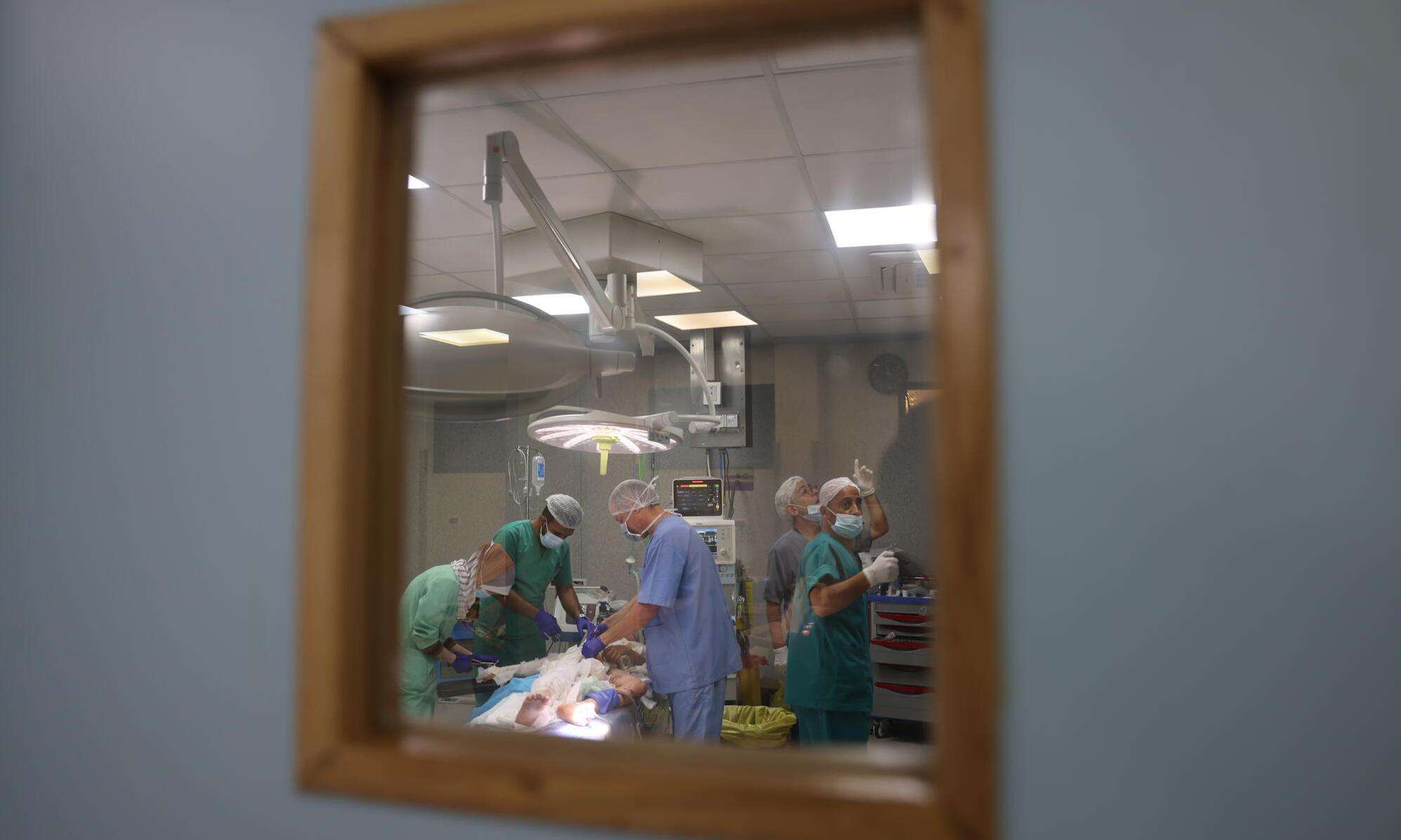NEW YORK/JERUSALEM, February 20, 2024—The international medical humanitarian organization Doctors Without Borders/Médecins Sans Frontières (MSF) is deeply concerned for the wellbeing of medical staff and patients trapped in Nasser Hospital in Khan Younis since Israeli forces attacked and raided it on February 15. Those still inside must be safely evacuated, said MSF.
There are approximately 130 patients and at least 15 health care workers still in the hospital with no electricity or running water and limited food, according to the United Nations. The UN has managed to transfer 32 patients in critical condition and is trying to evacuate the rest in the coming days. While MSF was forced to evacuate its staff after a shell struck the orthopedic department of the facility during the raid, its teams at Al-Aqsa Hospital and Rafah Indonesian Field Hospital are prepared to treat patients who are transferred. Currently, we have very little information about the conditions of the remaining medical staff and patients in Nasser Hospital.
On February 13—prior to the raid—Israeli forces ordered the evacuation of the thousands of displaced people sheltering in Nasser Hospital and told medical staff and patients they could remain in the building with one caretaker per patient. Many civilians were afraid to leave the hospital because shots had been directly fired at the building and at people trying to leave the compound. For weeks before, medical staff, patients, and displaced people seeking safety at Nasser Hospital found themselves trapped inside the compound with very little access to essential supplies amid heavy fighting.
“The situation in Nasser Hospital is yet another example of the way health care facilities are being dismantled one by one in this war,” said Guillemette Thomas, MSF medical coordinator for Palestine. “Even though they were initially told they could stay inside the facility, medical staff and patients were put in danger in a place where they should have been protected. We are outraged that, once again, they have had to pay a heavy price.”
MSF has still not heard from two of our staff members who were in Nasser Hospital at the time of the attack, including one who has been unaccounted for since the attack and another who was detained at a checkpoint by Israeli forces while trying to leave Nasser Hospital. We ask Israeli authorities to share information about their whereabouts and we call for their safety and the protection of their dignity.
Once the largest health care facility in southern Gaza, Nasser Hospital no longer has the capacity to treat patients. What is left of Gaza’s health system is barely functioning due to its main hospitals being constantly affected by military operations and heavy fighting in their immediate vicinities. Tens of thousands of people have not only been injured but maimed for life, and there is currently no possibility for proper treatment or continuation of care. Attacks on medical facilities, their staff, and patients must stop. Hospitals should never be a target. MSF reiterates its urgent call for an immediate and sustained ceasefire to spare civilians’ lives and for substantial humanitarian aid to reach people in Gaza.




